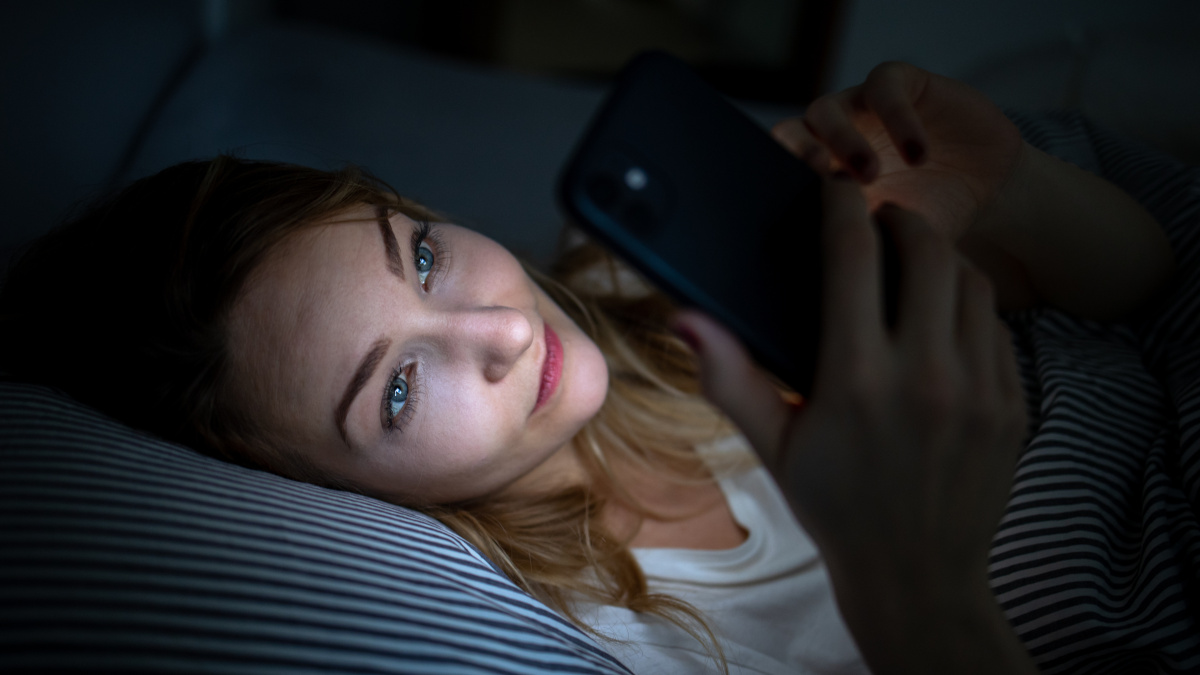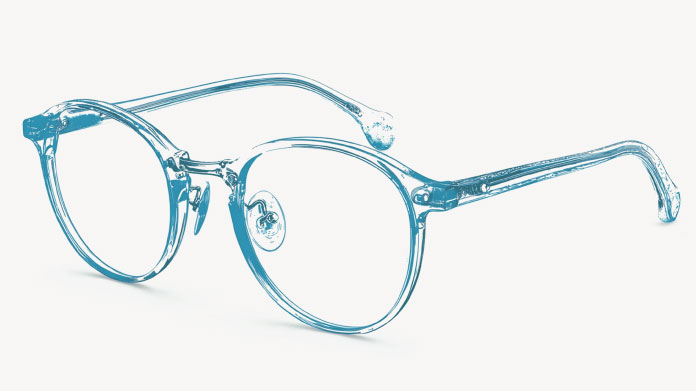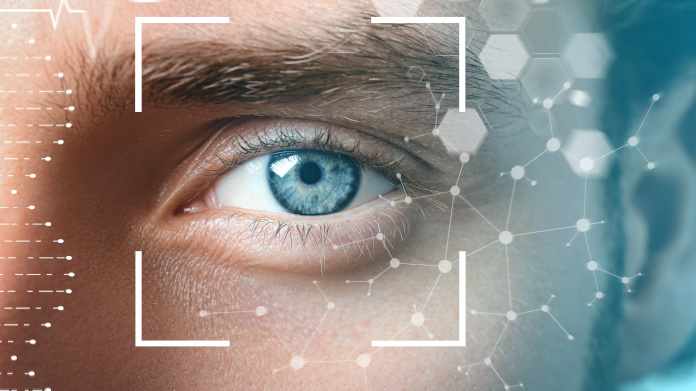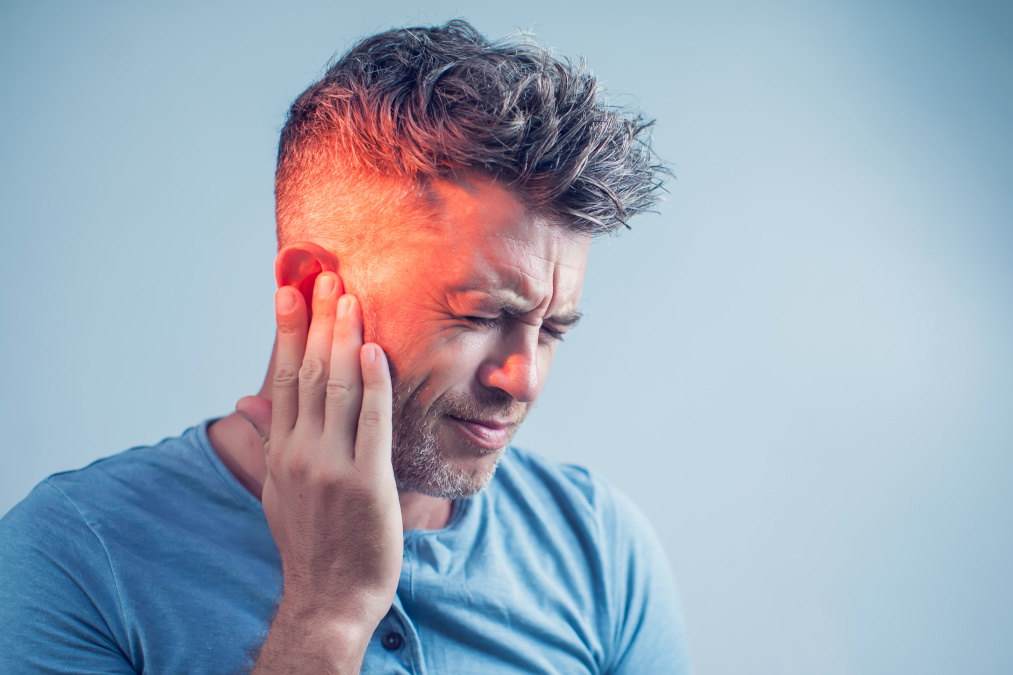How can you protect your eyes from blue light?
Eyestrain, mood disturbance, sleep problems … Discover how blue light affects your health and how these 5 natural products can help.

Recap: what exactly is blue light?
The human eye is able to perceive light waves responding to a narrow frequency band, also known as wavelengths. Blue light is situated at one extreme of the visible light spectrum, very close to UV rays, and as such, presents a health risk when exposure is prolonged.
Such exposure will eventually lead to eye fatigue (causing dry eyes and irritation), mood disturbance, reduced production of melatonin and thus sleep problems...
Natural sunlight also contains blue rays, but LED lightbulbs and screens emit more blue light than that produced by the sun. With new technology advancing exponentially, our exposure to this kind of artificial light, through smartphones, tablets, televisions and other electronic devices, can only increase.
Combatting the effects of blue light: some general advice
The best way of minimising the effects of blue light on your health is to limit your screen time. If you have no choice but to spend significant periods in front of a screen or on a smartphone, make sure you take regular breaks – ideally, 10 minutes every 2 hours.
Take care too to adjust your screen brightness correctly in relation to where it is and the time of day. The aim is to reproduce as closely as possible the normal cyclical variations of natural light. You should also leave enough distance between your eyes and the screen (at least an armlength). In the evening, you can usually put your smartphone on ‘night shift’ mode. Anti-blue light glasses are also available.
With regard to lighting, it’s best to choose warm tones instead of bulbs that give off cold, white light.
To minimise sleep issues, we recommend stopping all exposure to screens half an hour to an hour before bedtime.
5 natural products to help fight the effects of blue light
If you’re keen to find natural ways of reducing your risk from blue light exposure, you’ll be pleased to know that certain substances offer particular benefits in this respect:
Bilberries
Wild bilberry is a slightly sweet and tangy fruit which is rich in anthocyanins, the pigments that give certain fruit and flowers their color. Among the anthocyanins in bilberry, researchers have identified cyanidin and delphinidin as enabling the regeneration of rhodopsin, or visual purple. Bilberry thus supports visual function in cases of prolonged screen exposure. You can incorporate bilberries into your diet or alternatively, take a bilberry supplement, either on its own, or combined with other active ingredients with similar properties.
Omega-3
Docosahexaenoic acid (DHA), an omega-3 fatty acid, promotes regeneration of an eye pigmentprotective role, eliminating impurities from the retina. DHA is thus a key element in the eye’s composition: it helps to maintain normal vision. To ensure adequate levels, choose foods rich in essential fatty acids, such as oily fish and certain vegetable oils, or supplement regularly with DHA.
Vitamin A
Present in numerous colorful foods such as spinach, carrots and orange-colored fruit, vitamin A is good for vision and helps to counter the effects of blue light. To increase your daily intake, eat more vitamin A-rich foods, or take a supplement with a high content of retinol, an excellent form of vitamin A (such as the formulation Optivision, which also contains bilberry extract, glutathione, lutein and astaxanthin, etc.)
Melatonin
Melatonin is a hormone naturally secreted by the body, known for promoting drowsiness. It regulates our sleep-wake cycle but can only be produced in low-light conditions. To help counter the negative effects of blue light on melatonin production, you can take a supplement such as Melatonin or Melatonin Spray to help you sleep better.
Valerian
Another substance that helps combat the sleep problems associated with blue light exposure is valerian . This plant has been used in Europe since ancient times to improve sleep quality. It is a common ingredient in phytotherapy products formulated to relieve insomnia, especially stress-related insomnia. As well as improving sleep, valerian helps to reduce anxiety and support good mental health. You’ll find it in the formulationNatural Sleep Formula, along with other active ingredients with complementary properties (hop, Californian poppy, rhodiola...) Its ‘sister’ product,Advanced Sleep Formula similarly contains a number of natural extracts, combined in this case, with melatonin.
References
- Chu W, Cheung SCM, Lau RAW, et al. Bilberry (Vaccinium myrtillus L.) In: Benzie IFF, Wachtel-Galor S, editors. Herbal Medicine: Biomolecular and Clinical Aspects. 2nd edition. Boca Raton (FL) : CRC Press/Taylor & Francis ; 2011
- Gilbert C. What is vitamin A and why do we need it?. Community Eye Health. 2013;26(84):65.
- Hodge W, Barnes D, Schachter HM, et al. Effects of Omega-3 Fatty Acids on Eye Health: Summary. 2005 Jul. In: AHRQ Evidence Report Summaries. Rockville (MD): Agency for Healthcare Research and Quality (US); 1998-2005. 117.
- Sedative and sleep-enhancing properties of linarin, a flavonoid-isolated from Valeriana officinalis - Sebastián Fernández Cristina Wazowski Alejandro C Paladini Mariel Marder
- Instituto de Quı́mica y Fisicoquı́mica Biológicas, Facultad de Farmacia y Bioquı́mica, Junı́n 956 (1113), Buenos Aires, Argentina
- Meta-Analysis: Melatonin for the Treatment of Primary Sleep Disorders - Eduardo Ferracioli-Oda, Ahmad Qawasmi, Michael H. Bloch. Published: May 17, 2013 https://doi.org/10.1371/journal.pone.0063773
Keywords
2 Days
Order was shipped on time and packaged…Wonderful Jobs!
Order was shipped on time and packaged excellently.
DMHoge
8 Days
great products and prices
great products and prices
Marie
14 Days
Easy to navigate site
Easy to navigate site, had what I was searching for, good price. easy order-check out
James Tucker
20 Days
My skin is clearing up nicely!
Pretty good for my skin so far.
Christian
22 Days
The new packaging is excellent
The new packaging is excellent - finally! No more squashed boxes and torn envelopes.
GORAN
23 Days
Great Product
Great Product
Larry Garrett
27 Days
Quick shipping
Quick shipping; good price. No issues!
Mary McCarty
29 Days
Thr product is very good and is helping…
Thr product is very good and is helping me on my health. Then is always on time
LUGO Luz
31 Days
Buying was fine
Buying was fine. I had problems with the website not recognizing my login info, and had to call to get it fixed. Other than that, everything was good.
David S. Clark
32 Days
Your super maca and super ginseng are…phenomenal
Your super maca and super ginseng are phenomenal supplements that compliment each other when taking them together. Fantastic feeling of well-being and lots of mid day energy without the crash.
Keith Mason
34 Days
I have had amazing results with every…
I have had amazing results with every supplement I've purchased. I am extremely satisfied with this company
kirstin Torres
34 Days
Fine products
Fine products . They are on the leading edge of online supplements. The only issue -so far-is they sometime run out of subscription items.
Jason Argos
37 Days
The ordering process is very user…
The ordering process is very user friendly and the products always come in a timely manner.
CARTER Rhonda
38 Days
The price for Dr
The price for Dr. Pero's AC-11 is reasonable and in line with his views. (my former colleague). Keep it pure.
CAMPBELL Clayton
41 Days
Right on every time.
Right on every time.
Arthur Nicholas




